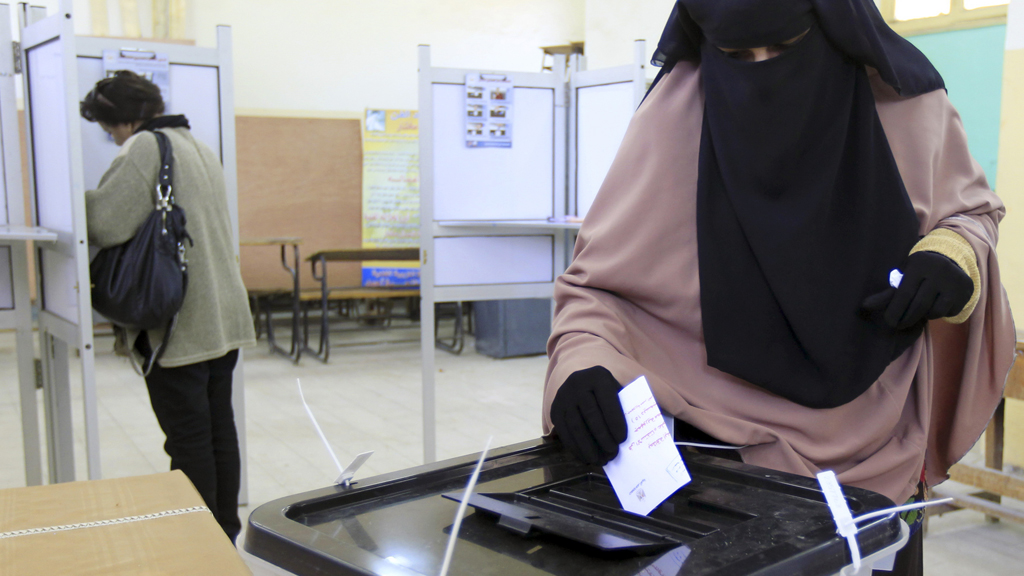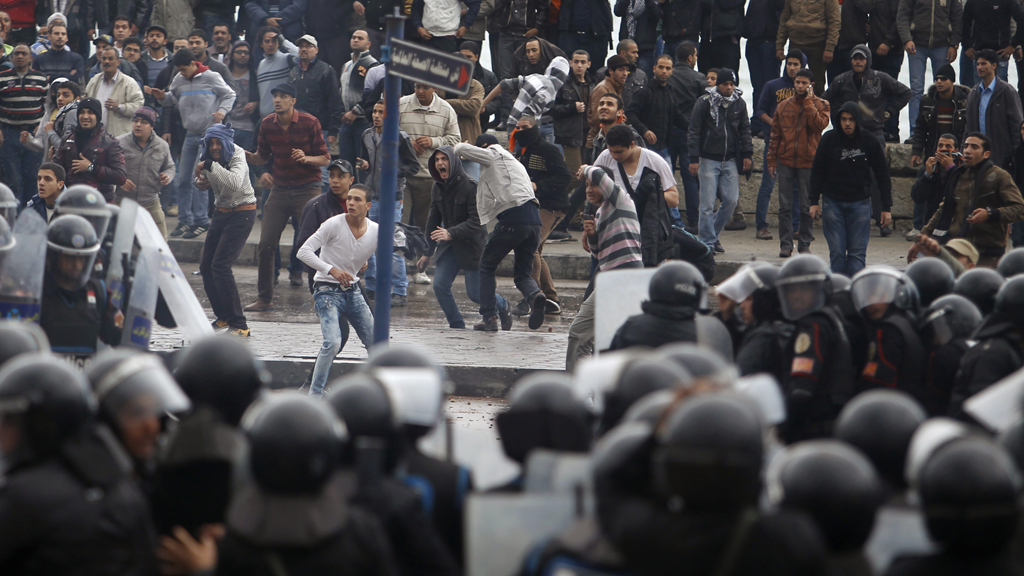Egypt constitution vote: vice-president resigns
Egypt’s vice-president resigns hours before polls close in the second round of a referendum over controversial constitutional reform.

Mahmoud Mekki, announced his resignation on Saturday during the second day of voting, following the first on 15 December, in which the Islamist-drawn up constitution is expected to get the backing of the majority.
The move was in part expected since the new charter would eliminate the vice presidency post. But Mekki hinted that the hurried departure could be linked to Morsi’s policies.
“I have realized a while ago that the nature of politics don’t suit my professional genesis as a judge,” his resignation letter, read on state TV, said. He said he had first submitted his resignation last month but events forced him to stay on.
Egyptians headed to the polls following a first vote on 15 December, to decide whether to approve the document – which was largely formed by members of the Islamic Brotherhood and was the focal point for waves of violent protests in recent weeks.
The first round of votes, covering about half of Egypt’s registered voters, resulted in a 57 per cent vote in favour of the new constitution according to unofficial sources – a slim enough vote to buttress opposition complaints that the document is divisive and ignores the rights of groups such as Egypt’s Christian community and women.
However, analysts say the second round of votes is likely to yield another “yes” in the referendum as it covers more rural areas of the country are traditionally dominated by Islamist sympathisers.
Opponents to the constitution complained of irregularities in the first round of votes, including that polling stations opened late, Islamists illegally compaigned outside some stations in favour of the constitution, as well as other irregularities such as the listing of at least one dead person.
However, the committee overseeing the two-stage vote said their investigations showed no major irregularities.
Adoption of divisive draft constitution that violates universal values & freedomsis a sure way to institutionalize instability & turmoil.
— Mohamed ElBaradei (@ElBaradei) December 15, 2012
Ending instability?
The consitution has been a deeply divisive issue in Egypt, with supporters claiming it is needed in order to end instability in the most populous Islamic nation, following the Arab Spring and the ousting of former president Hosni Mubarak.
“We have to extend our hands to Mursi to help fix the country,” said Hisham Kamal, an accountant.
However, concerns have also been raised including by human rights groups, that Egypt’s president Mohamed Mursi is pushing through legislation that favours his Islamic allies over minority groups.

“I’m voting ‘no’ because Egypt can’t be ruled by one faction,” said Karim Nahas, 35, a stockbroker, heading to a polling station in Giza.
Polling stations opened at 8am (6am GMT) and will close at 7pm (5pm GMT). Unofficial results are likely to emerge within hours of the stations closing.
“More unrest”
If the consitution is approved, it could see further outbreaks of violence and unrest in the country. At least eight people have died in clashes outside Cairo’s presidential palace earlier this month.
Ahmed Said, head of the liberal Free Egyptians Party and a member of the National Salvation Front, an opposition coalition, said he can see “more unrest” in the wake of a positive vote for the constitution.
“People are not going to accept the way they are dealing with the situation,” he said.
On Friday, Islamists and rivals clashed on in Alexandria, Egypt’s second biggest city, hurling stones at each other. Two buses were torched.